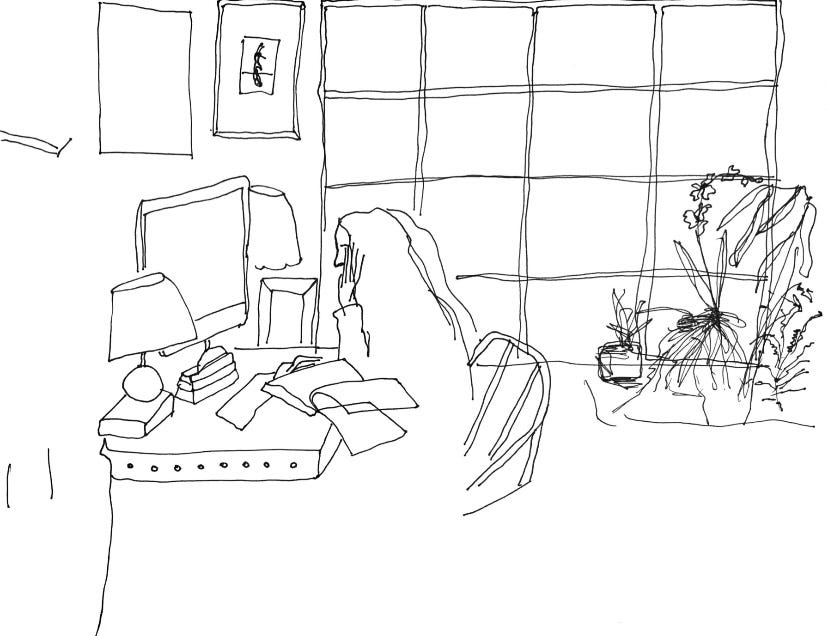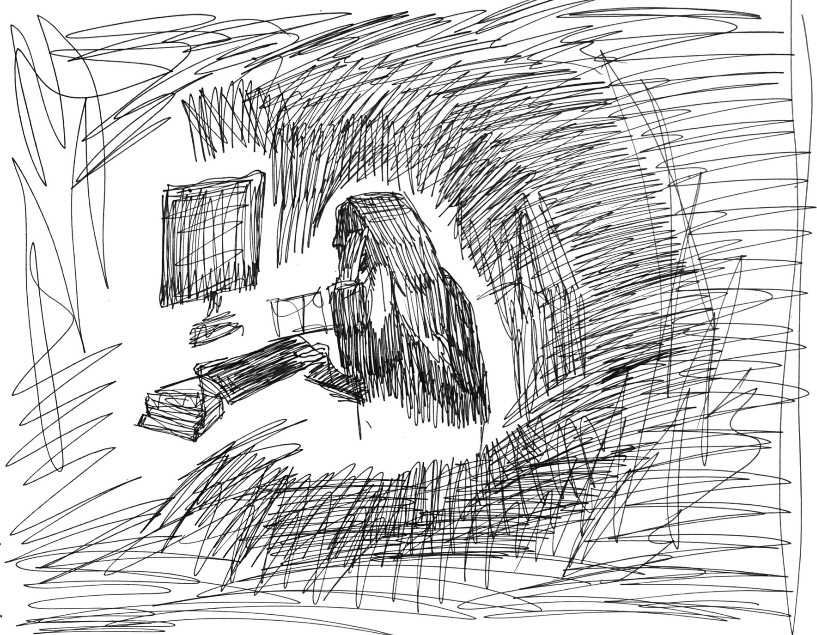A Post-Thanksgiving Post: Ode to Mom
Last week I wrote about the follies of the young and avid reader—the often tutorless reader. I am a young and avid reader, prone to quick judgements, idealistic pretensions, and all the rest. But crucially I am not tutorless, or parentless (as Eliot’s Dorothea was). In fact, I have gotten exceptionally lucky with my tutor-parent, my mother-turned-homeschool director, my academic mom turned independent scholar/unemployed Hausfrau.
My mom is a writer, and not a sit down in your white turtleneck and pour out a play in a night Nora Ephron movie kind of writer, but more like an Adaptation-era Charlie Kaufman painstaking sentence by sentence kind of writer. She is a Melville scholar, not the kind who knows about the 19th-century whaling industry.
It’s not every day that some seventeen-year-old schmuck like me gets to be taught by a former college professor. But most of the time it’s hard for me to see how special that is because it’s just the way it is. Here’s a good opportunity for me to tell the truth to myself, which is that without my mom I’d be “just a bit of toast” (as my beloved Count Almásy says).
My mom knows nothing about things people think are important. Which is not to say she doesn’t know how to do anything important. Precisely the opposite. Her skills—being a good reader, writer, and teacher (i.e. knowing how to read a book, write about it, and lead a young person to bring their attention to it)—are the most important on my priority list, if not the world’s.
She has a way of telling you you’re wrong that not only doesn’t make you feel bad but actually makes you feel better. Either you’re actually wrong (ninety-eight percent of the time, in my case) or you’re actually right and you push back and she is open to and sees your point. That’s the best.
She knows what’s good for me even when I don’t know it myself. She says crazy things that turn out to be true. She is not very funny, because she is only capable of telling the truth. My mom makes people nervous because she can see what they don’t like about themselves, irrespective of how polished, eloquent, or put-together they may seem. She has no patience for academic hot air or emotional excuses, but she has eyes—and patience—for human frailty.
The very best moments in our homeschooling are when I’m working very hard, not because I’m trying not to get caught out not knowing something, but because I have realized I’m in good hands and can trust that the work I’m doing is worthwhile, even if in the moment I can’t yet see its value.
My mom reads and writes about pretty intense works of philosophy and literary criticism (Wittgenstein’s Tractatus, Auerbach’s Mimesis) but she is an unabashed reader of the People magazine and this week, for example, got up with me for a midnight viewing of trashy teenage romance TV. We both wept.
One of the reasons why it’s hard for me to think about going away to college is it’s hard for me to think about learning anything in a place without my mom. It’s hard for me to believe I’m ever going to find a teacher as good as her.





